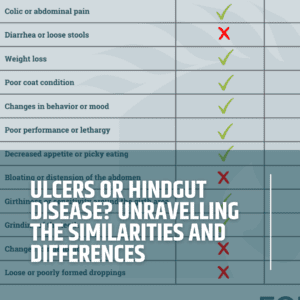This study introduces the first application of Selected Ion Flow Tube Mass Spectrometry (SIFT-MS) to analyse volatile organic compounds (VOCs) in faecal headspace from horses with and without colic. The research compared horses suffering from acute intestinal disease affecting the large colon with a control group admitted for non-gastrointestinal conditions at an equine hospital.
The study population comprised Thoroughbreds or Thoroughbred crosses aged 5-19 years, all maintained on similar diets. Faecal samples were collected during clinical examination or from spontaneous voiding, immediately frozen in liquid nitrogen, and stored at -80°C until analysis.
Statistical analysis revealed significant concentration differences in acetone and methanol between the groups. Multivariate analysis, particularly Orthogonal Partial Least Squares Discriminant Analysis (OPLS-DA), proved effective at discriminating between groups, especially when using SIFT-MS data acquired with the H3O+ precursor ion. This analysis also highlighted ammonia as a significant discriminating ion.
The research identified and quantified various compounds in the faecal headspace, including acetaldehyde, acetic acid, acetone, ammonia, and ethanol. The findings suggest significant alterations in hindgut fermentation patterns in horses with colic, supported by both compound-specific data and multivariate analysis.
The study demonstrates that SIFT-MS, combined with appropriate statistical analysis, can effectively detect altered microbial fermentation associated with acute intestinal disease in horses. While individual compound differences might not serve as diagnostic markers, the multivariate statistical approach shows promise for assessing and monitoring colic. This technique offers advantages over traditional gas chromatography-mass spectrometry in terms of speed and ease of data analysis, providing valuable insights into the metabolic changes associated with equine colic.




